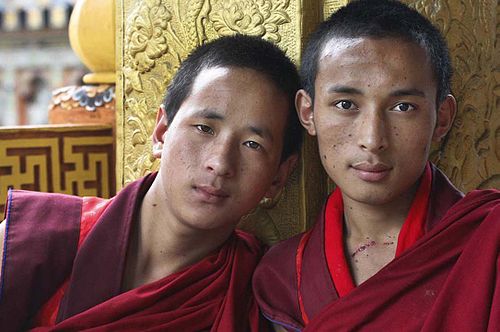Matenoun
A fellow, comrade, colleague, partner or someone with whom something is shared, e.g. shipmate, classmate.
Matenoun
(especially of a non-human animal) A breeding partner.
Matenoun
A friend, usually of the same sex.
Matenoun
a colloquial "sir"; an informal and friendly term of address to a stranger, usually male, of similar age
Matenoun
(nautical) In naval ranks, a non-commissioned officer or his subordinate (e.g. Boatswain's Mate, Gunner's Mate, Sailmaker's Mate, etc).
Matenoun
(nautical) A ship's officer, subordinate to the master on a commercial ship.
Matenoun
(nautical) A first mate.
Matenoun
A technical assistant in certain trades (e.g. gasfitter's mate, plumber's mate); sometimes an apprentice.
Matenoun
The other member of a matched pair of objects.
Matenoun
A suitable companion; a match; an equal.
Matenoun
(chess) Short for checkmate.
Matenoun
alternative spelling of maté|nodot=1, an aromatic tea-like drink prepared from the holly yerba maté (Ilex paraguariensis).
Matenoun
The abovementioned plant; the leaves and shoots used for the tea
Mateverb
(intransitive) To match, fit together without space between.
Mateverb
(intransitive) To copulate.
Mateverb
(intransitive) To pair in order to raise offspring
Mateverb
(transitive) To arrange in matched pairs.
Mateverb
(transitive) To introduce (animals) together for the purpose of breeding.
Mateverb
To copulate with.
Mateverb
(transitive) To marry; to match (a person).
Mateverb
(transitive) To match oneself against; to oppose as equal; to compete with.
Mateverb
(transitive) To fit (objects) together without space between.
Mateverb
To move (a space shuttle orbiter) onto the back of an aircraft that can carry it.
Mateverb
(intransitive) To win a game of chess by putting the opponent in checkmate
Mateverb
To confuse; to confound.
Matenoun
The Paraguay tea, being the dried leaf of the Brazilian holly (Ilex Paraguensis). The infusion has a pleasant odor, with an agreeable bitter taste, and is much used for tea in South America.
Matenoun
Same as Checkmate.
Matenoun
One who customarily associates with another; a companion; an associate; any object which is associated or combined with a similar object.
Matenoun
Hence, specifically, a husband or wife; and among the lower animals, one of a pair associated for propagation and the care of their young.
Matenoun
A suitable companion; a match; an equal.
Matenoun
An officer in a merchant vessel ranking next below the captain. If there are more than one bearing the title, they are called, respectively, first mate, second mate, third mate, etc. In the navy, a subordinate officer or assistant; as, master's mate; surgeon's mate.
Mateadjective
See 2d Mat.
Mateverb
To confuse; to confound.
Mateverb
To checkmate.
Mateverb
To match; to marry.
Mateverb
To match one's self against; to oppose as equal; to compete with.
Mateverb
To breed; to bring (animals) together for the purpose of breeding; as, she mated a doberman with a German shepherd.
Mateverb
To join together; to fit together; to connect; to link; as, he mated a saw blade to a broom handle to cut inaccessible branches.
Mateverb
To be or become a mate or mates, especially in sexual companionship; as, some birds mate for life; this bird will not mate with that one.
Matenoun
the officer below the master on a commercial ship
Matenoun
a fellow member of a team;
Matenoun
the partner of an animal (especially a sexual partner);
Matenoun
a person's partner in marriage
Matenoun
an exact duplicate;
Matenoun
South American holly; leaves used in making a drink like tea
Matenoun
informal term for a friend of the same sex
Matenoun
South American tea-like drink made from leaves of a South American holly called mate
Matenoun
a chess move constituting an inescapable and indefensible attack on the opponent's king
Mateverb
make love;
Mateverb
bring two objects, ideas, or people together;
Mateverb
place an opponent's king under an attack from which it cannot escape and thus ending the game;
Friendnoun
A person other than a family member, spouse or lover whose company one enjoys and towards whom one feels affection.
Friendnoun
A boyfriend or girlfriend.
Friendnoun
An associate who provides assistance.
Friendnoun
A person with whom one is vaguely or indirectly acquainted
Friendnoun
A person who backs or supports something.
Friendnoun
(informal) An object or idea that can be used for good.
Friendnoun
Used as a form of address when warning someone.
Friendnoun
(object-oriented programming) A function or class granted special access to the private and protected members of another class.
Friendnoun
(climbing) A spring-loaded camming device.
Friendnoun
(obsolete) A paramour of either sex.
Friendverb
To act as a friend to, to befriend; to be friendly to, to help.
Friendverb
(transitive) To add (a person) to a list of friends on a social networking site; to officially designate (someone) as a friend.
Friendnoun
One who entertains for another such sentiments of esteem, respect, and affection that he seeks his society and welfare; a wellwisher; an intimate associate; sometimes, an attendant.
Friendnoun
One not inimical or hostile; one not a foe or enemy; also, one of the same nation, party, kin, etc., whose friendly feelings may be assumed. The word is some times used as a term of friendly address.
Friendnoun
One who looks propitiously on a cause, an institution, a project, and the like; a favorer; a promoter; as, a friend to commerce, to poetry, to an institution.
Friendnoun
One of a religious sect characterized by disuse of outward rites and an ordained ministry, by simplicity of dress and speech, and esp. by opposition to war and a desire to live at peace with all men. They are popularly called Quakers.
Friendnoun
A paramour of either sex.
Friendverb
To act as the friend of; to favor; to countenance; to befriend.
Friendnoun
a person you know well and regard with affection and trust;
Friendnoun
an associate who provides assistance;
Friendnoun
a person with whom you are acquainted;
Friendnoun
a person who backs a politician or a team etc.;
Friendnoun
a member of the Religious Society of Friends founded by George Fox (the Friends have never called themselves Quakers)






